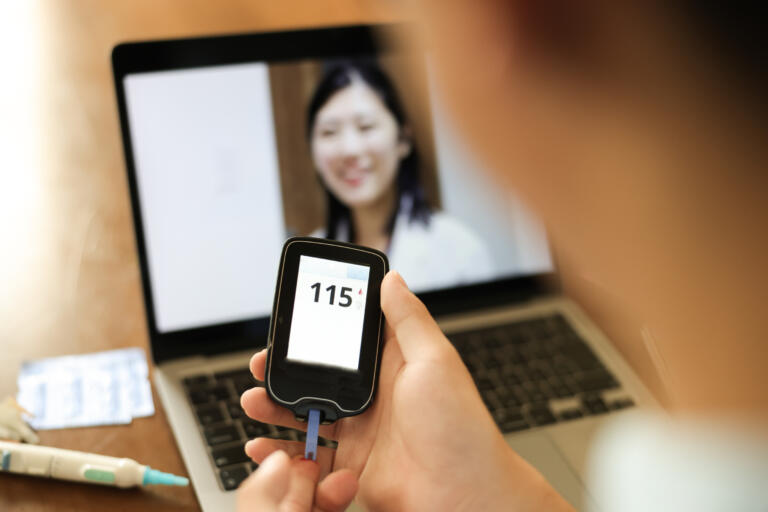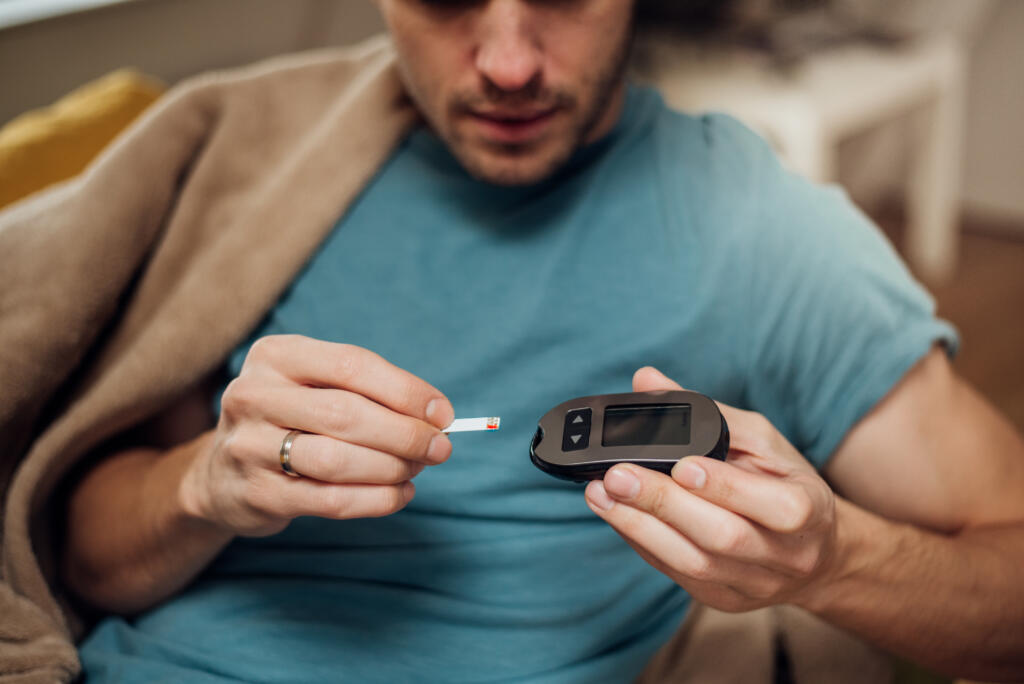
What you need to know about your workplace rights as a person with T1D.
A stomach bug, the flu, a sinus infection, or even the common cold can have a big impact on type 1 diabetes (T1D). When you are sick, it’s important to pay extra attention to your T1D to stay safe.

No matter which illness you’re dealing with, there are a few things everyone living with T1D should remember.
If you’re using a CGM, closely monitor your levels, or check your blood-glucose every 2 to 4 hours with a glucometer. Sick days can cause unexpected spikes or drops in your blood-glucose.
Drink plenty of fluids—staying hydrated is critical. If you cannot keep fluids down due to vomiting, visit your nearest emergency department immediately. Dehydration can lead to diabetic ketoacidosis (DKA).
It’s important to nibble on some crackers or slowly sip some carbohydrates to prevent ketone development. Your body is already under additional stress from being sick. If you cannot keep food down due to vomiting, visit your nearest emergency department immediately to prevent DKA.
Ketones increase your risk of DKA, which requires intravenous fluids and medical support. If you test positive for moderate or large ketones, call your healthcare team immediately or visit your nearest emergency department. Learn more about ketones.
Your body still needs insulin even if you’re eating very little. In some circumstances, your body may need more insulin while it’s fighting off an infection, a fever, or increased inflammation, which can all cause hyperglycemia (high blood sugar). Talk to your healthcare team to help you adjust your insulin doses.
Have emergency glucagon on hand to treat severe lows and make sure you know how to use it. Today’s single-step emergency glucagon options are easy to use. Ask your doctor for a new prescription and be sure to fill that prescription before you need it.
Talk with your doctor about a prescription for anti-nausea/antiemetic medication like ondansetron (Zofran) to have on hand for sick days.
Work with your diabetes care team to develop a plan for managing your T1D while sick.
Always stay in close contact with your diabetes care team and seek emergency care if you can’t manage things at home.
The following are a few tips on how different illnesses might affect your diabetes management needs. Reach out to your healthcare team for support in adjusting insulin doses during sick days.
You may not see much impact on your blood-glucose levels. More severe colds could lead to high blood sugar. If you’re lying low on the couch, the decrease in physical activity can also call for a bit more insulin.
Nausea and vomiting complicate T1D management. If you or your loved one can’t keep food down or is vomiting, immediately contact the diabetes care team or seek emergency medical care.
Infections of any kind can lead to high glucose levels. Fevers and infections can mean you may need more insulin, even if you are eating very little. Talk to your healthcare team to adjust insulin doses as needed. Don’t forget: get plenty of fluids and rest, rest, rest!
In addition to insulin, you may need to take other medications to treat your illness. Talk to your doctor about how these medications might affect your diabetes care regimen.

What you need to know about your workplace rights as a person with T1D.

Resources to help you manage the stress and emotions of living with T1D

Traveling with T1D can present some extra challenges. Preparation is key!